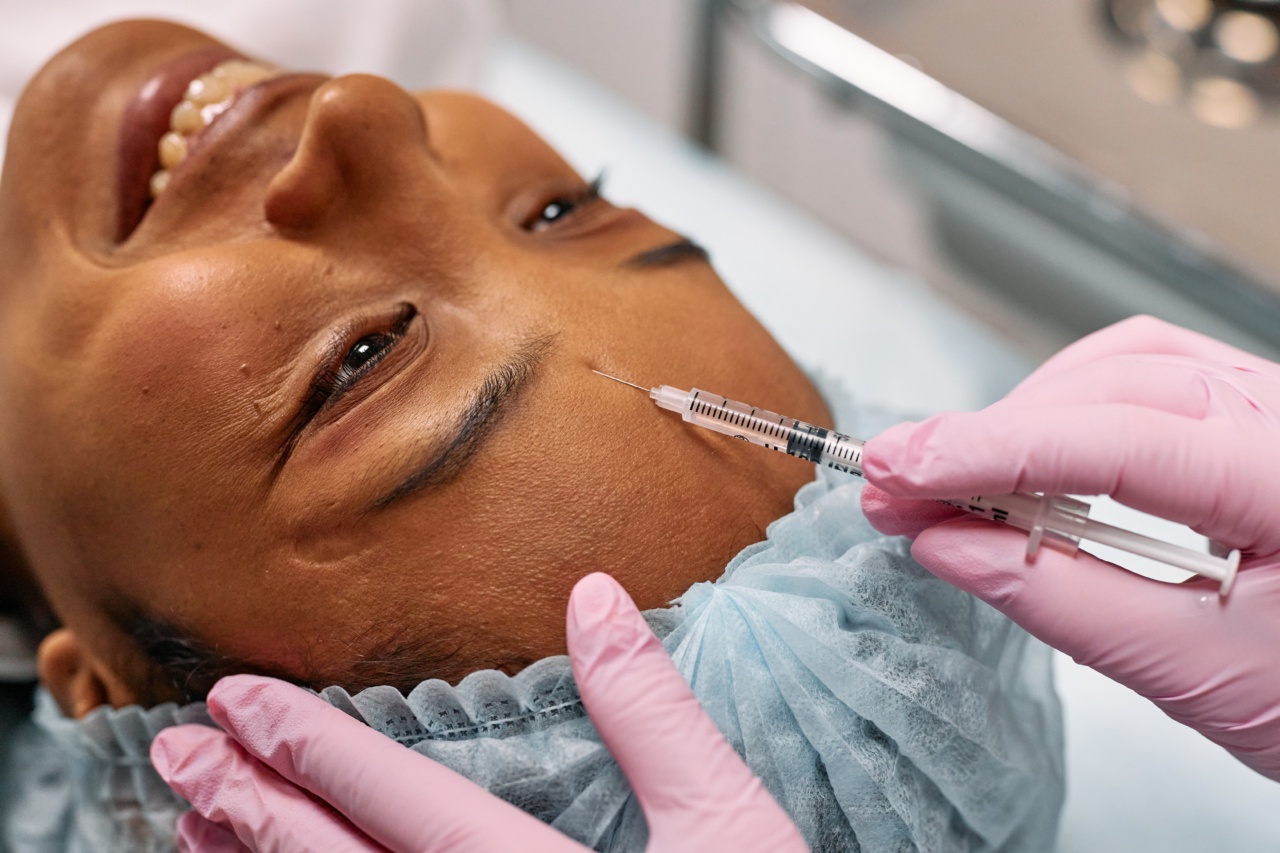Botox injection is a cosmetic treatment that is performed to reduce the appearance of wrinkles, fine lines, and other signs of ageing. This treatment involves injecting botulinum toxin into the muscles that cause wrinkles and fine lines.
Botox injection is a popular form of cosmetic treatment, and millions of people worldwide undergo it every year. However, there are certain restrictions on getting botox injections that people should be aware of before undergoing the treatment.
Age Restrictions
Age is one of the most important factors in determining whether a person can undergo botox treatment or not. Botox is not recommended for individuals under the age of 18, as their facial features are still developing.
Moreover, younger individuals may not have enough wrinkles or fine lines to justify botox treatment. In addition, older individuals who are above the age of 65 may also be advised against getting botox, as their skin may be too delicate or thin, making them more prone to side effects or complications.
Medical Conditions
There are certain medical conditions that may make a person ineligible for botox treatment. Individuals who have muscle or nerve conditions, such as myasthenia gravis, ALS, or Lambert-Eaton syndrome, should not undergo botox treatment.
Additionally, people who have swallowing or breathing difficulties should not receive botox injections, as it can worsen their symptoms. Individuals who are allergic to any of the ingredients in botox or have had an adverse reaction to botox injections in the past should also avoid this treatment.
Medications
Some medications may interact with botox injections and cause adverse effects. Therefore, people who are taking medication for any health condition should inform their doctor before undergoing botox treatment.
In particular, individuals who are taking muscle relaxants, blood thinners, or antibiotics should be cautious when considering botox injections, as these medications may interact with botox and cause complications or side effects.
Pregnancy and Breastfeeding
Botox treatment is not recommended for pregnant or breastfeeding women. This is because the effects of botox on developing infants are not yet known, and there is a risk of botox passing into breast milk.
Women who are planning to get pregnant should also wait until after childbirth to undergo botox treatment.
Frequency of Treatment
Botox treatment is not a one-time procedure, and the effects of botox injections only last for a few months. Therefore, people who are considering botox treatment should be prepared to undergo multiple injections over their lifetime.
However, excessive or frequent use of botox injections can cause the body to develop antibodies against the toxin, making it less effective over time. Therefore, it is recommended that people limit their use of botox injections and consult their doctor about the frequency of treatment.
Overuse and Misuse of Botox
Botox treatment should always be carried out by a qualified and experienced medical practitioner.
Overuse or misuse of botox injections can cause serious complications, such as muscle weakness, eye drooping, facial pain, speech difficulties, and respiratory problems. Therefore, people should only undergo botox treatment from licensed and reputable clinics and ensure that the practitioner performing the procedure is properly trained and qualified.
Side Effects of Botox
Like any medical treatment, botox injections can cause side effects. Common side effects of botox treatment include swelling, redness, bruising, and pain at the injection site.
Some people may also experience headache, nausea, and flu-like symptoms after receiving botox injections. Although these side effects are usually mild and temporary, people should inform their doctor if they experience any of these symptoms after undergoing botox treatment.
Cosmetic versus Medical Use of Botox
Botox injections can be used for both cosmetic and medical purposes.
While cosmetic use of botox is mainly to improve the appearance of wrinkles and fine lines, medical use of botox includes the treatment of conditions such as migraines, muscle spasms, and excessive sweating. However, the restrictions on getting botox injections may differ for cosmetic and medical use. Therefore, people should discuss their specific case with their doctor before undergoing botox treatment.
Conclusion
Botox injections are a popular form of cosmetic treatment that has been used for years to reduce the appearance of wrinkles and fine lines.
However, there are certain restrictions on getting botox injections that people should be aware of before undergoing the treatment. These restrictions include age, medical conditions, medications, pregnancy and breastfeeding, frequency of treatment, overuse and misuse of botox, side effects of botox, and cosmetic versus medical use of botox.
Therefore, people should consult their doctor before undergoing botox treatment to ensure that they are eligible for the procedure and understand its potential risks and benefits.






























